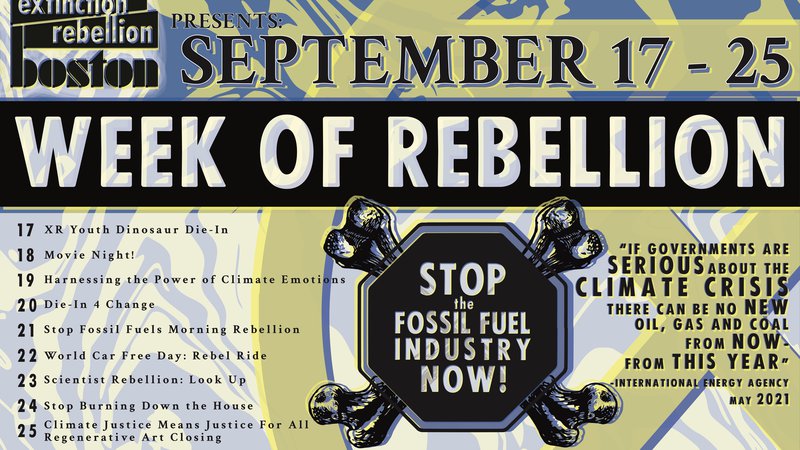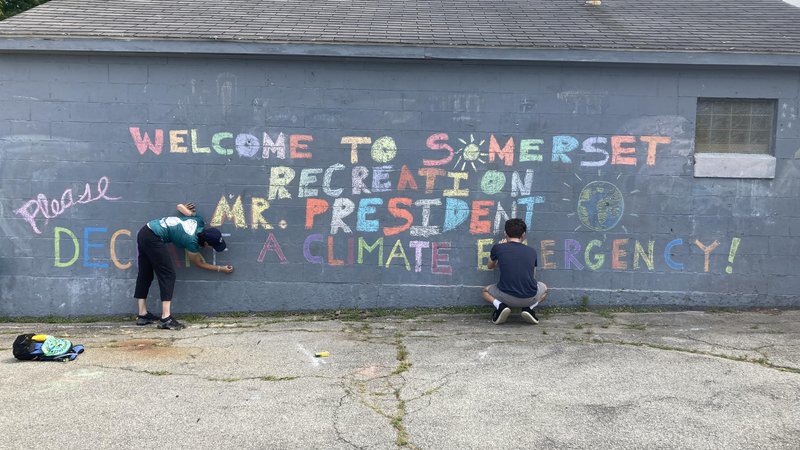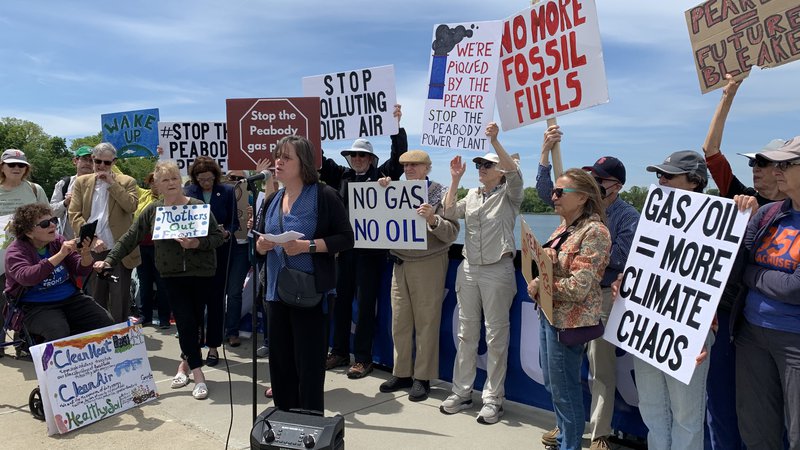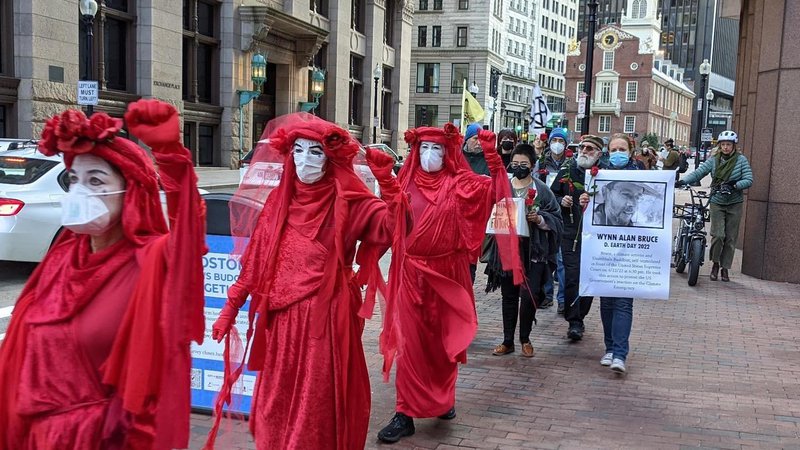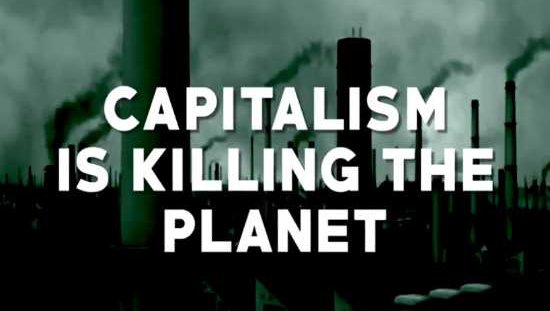
Capitalism is Killing the Planet
We can't have an economy based on infinite growth & excessive consumption and a habitable Earth. Even "green growth," an economy run on clean energy that's environmentally friendly has been deemed to be unfeasible in several studies. Green growth requires an excessive need for Earth's resources and the continued destruction of critical ecosystems. Ecological destruction is an even larger driver of the Sixth Mass Extinction than climate change from the burning of fossil fuels.
Capitalism, in and of itself, is a predatory system based on advertising that's targeted at our vulnerabilities. Advertising creates insecurities, competition, and a feeling of lack in people and then offers the solution, often at the expense of Earth and our collective wellbeing.
A round-up of the headlines below:
Foreign Policy News, "Why Growth Can’t Be Green"
"Many policymakers have responded by pushing for what has come to be called “green growth.” All we need to do, they argue, is invest in more efficient technology and introduce the right incentives, and we’ll be able to keep growing while simultaneously reducing our impact on the natural world, which is already at an unsustainable level. In technical terms, the goal is to achieve “absolute decoupling” of GDP from the total use of natural resources, according to the U.N. definition...It sounds like an elegant solution to an otherwise catastrophic problem. There’s just one hitch: New evidence suggests that green growth isn’t the panacea everyone has been hoping for. In fact, it isn’t even possible.
The only realistic shot humanity has at averting ecological collapse is to impose hard caps on resource use, as the economist Daniel O’Neill recently proposed. Such caps, enforced by national governments or by international treaties, could ensure that we do not extract more from the land and the seas than the Earth can safely regenerate."
The Atlantic, "Is This the Grossest Advertising Strategy of All Time?"
Most of the time, targeted ads are pretty harmless. You searched for a flight to Denver? Here are some hotels in Denver. You looked for new running sneakers? Here are a few options...But a new "study" from marketing firm PHD recommends a strategy that crosses the line from merely targeted to outright predatory, explicitly advising brands to seize on the times of the day and week when women feel the most insecure about their bodies and overall appearance in order to sell beauty products and other goods.
Women, the study claims to have found, feel less attractive on Mondays, especially in the morning. Thus, as the release explains, "Monday becomes the day to encourage the beauty product consumer to get going and feel beautiful again, so marketing messages should focus on feeling smart, instant beauty/fashion fixes, and getting things planned and done. Concentrate media during prime vulnerability moments, aligning with content involving tips and tricks, instant beauty rescues, dressing for the success, getting organized for the week and empowering stories."
Harvard Business Review, "Advertising Makes us Unhappy"
Their line is that advertising is trying to expose the public to new and exciting things to buy, and their task is to simply provide information, and in that way they raise human well-being. But the alternative argument, which goes back to Thorstein Veblen and others, is that exposing people to a lot of advertising raises their aspirations—and makes them feel that their own lives, achievements, belongings, and experiences are inadequate. This study supports the negative view, not the positive one..It’s worth wondering whether Western society has done the right thing by allowing large levels of advertising, almost unregulated, as though it were inevitable.
There's a term on social media more and more young people are using to explain the feeling that no matter what they do, it's never enough: internalized capitalism.
"Internalized capitalism is this idea that our self-worth is directly linked to our productivity," said Anders Hayden, a political science professor at Dalhousie University in Nova Scotia who is conducting research on the political and policy impacts of alternative measures of wellbeing and prosperity outside of gross domestic product (GDP).
Grist, "How to save Christmas from consumerism"
"When you consider the amount of resources — water, land, carbon emissions — and underpaid, exploited human labor that go into goods that are often simply landfill-bound, it is hard not to be horrified...And for what? In many cases, holiday buying habits are driven by a need to meet imagined expectations, an attempt to bring happiness to loved ones. While giving and receiving gifts can impart delight and even temporary joy, overbuying for the sake of obligation can also cause emotional and financial distress."
And yet, taking the “consume” out of Christmas is far easier said than done. We’re up against some powerful forces, including many billions of dollars in corporate advertising and a strong American cultural compulsion to shower our loved ones with gifts.
Monmouth Magazine, "Our Love Affair With Capitalism Is Killing The Planet"
“We love to love capitalism,” says Mezey, a professor of sociology and dean of the Honors School. “The bottom line for capitalism is to increase the profitability of corporations…and the very growth that corporations rely on causes the degradation of this Earth."
In today’s post-industrial consumer economy, a corporation’s major focus is to produce as much as possible in hopes that consumers buy as much as possible, says Mezey. And thanks to advances in technology and companies like Amazon, consuming has never been easier..But there is hope, says Mezey. Individuals, companies, and even some communities are slowly making efforts to change. New York City, for example, is attempting to adopt a circular economy, a widescale effort that aims to have no additional energy and production going into the economy, as well as no more waste going out...But while that’s a step in the right direction, Mezey points out that the biggest change that needs to happen is a cultural one. Individuals must recognize the problems that exist with regard to Americans’ overconsumption in order to affect change across the larger political and economic systems.
Becoming Minimalist, "9 Intentional Ways to Challenge Consumerism in Your Life"
Look deep into your motivations. Advertisers play on our motivations by appealing to our desires in subtle ways. Advertisements are no longer based on communicating facts about a product. Instead, they promise adventure, reputation, esteem, joy, fulfillment, and sex. What inner-motivations are subconsciously guiding your purchases? What motivations (greed, envy) need to be rooted out? And what motivations (meaning, significance) need to find their fulfillment elsewhere?
Do more of what makes you happy. Your possessions are not making you happy. Once our basic needs have been met, the happiness found in consumerism is fleeting at best. Instead, find what it is that truly makes you happy and do more of it. I find my happiness in faith, family, friends, and contribution. Your list may differ slightly. But either way, owning a whole bunch of stuff is almost certainly not on it.
Reforming corporate land ownership laws to replace Wall Street owners with those whose mission is to restore climate resiliency and maximize community benefits is a strategy that goes to the heart of the issue over gross mismanagement of our forests and farmlands throughout the nation. The CRA report is well worth the read and we applaud their efforts to think through the details – including workable financial models – of how this transition can be catalyzed.
Also check out Kate Raworth's 'Doughnut Economic Theory'
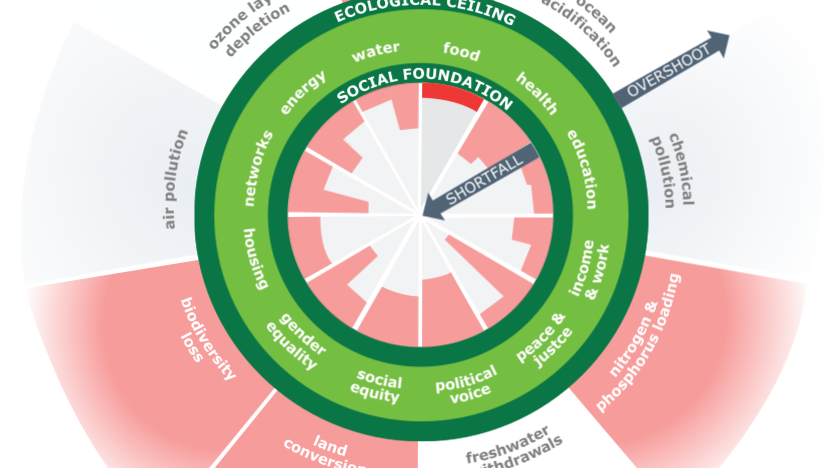
Kate Raworth's 'Doughnut Economic Theory'
Related Stories:
Featured:
-
The third annual Week of Rebellion is full of opportunities for celebration and action!
-
Our government had the opportunity to finally turn our state into a "climate leader," and they decided yet again to prioritize profits and political posturing over the well-being of residents.
-
Prominent climate scientists and activists demand immediate climate action in the United States.
-
Stop the Fossil Fuel Industry, Now: List of events for Extinction Rebellion Boston's September week of rebellion
-
A compilation of books, movies, articles, and ways to take action to protect Black lives
-
Nadia Colburn, PhD and member of Extinction Rebellion Media team, discusses how to talk about the climate and ecological crisis with family and friends.
Upcoming Events:
-
Wed Mar 4th @ 11 a.m.
-
Thu Mar 5th @ 7:30 p.m.
-
Sat Mar 7th @ 11 a.m.

